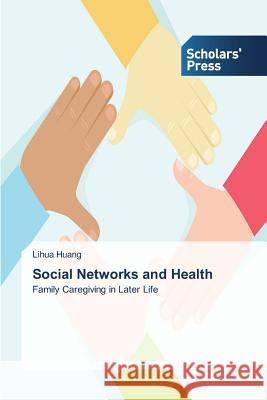Social Networks and Health » książka
Social Networks and Health
ISBN-13: 9783639705867 / Angielski / Miękka / 2014 / 200 str.
The purpose of this study was to better understand the social value of family caregiving in later life by examining the effects of social networks and family caregiving on the health of older adults. The study employed the positive gerontological framework. It was a cross-sectional, explanatory survey study using a questionnaire developed specifically for this study. Multiple data collection and data analysis methods were used to enhance the validity of the results. The results highlighted that family caregivers in later life had significantly lower levels of physical function and mental health, but social networks positively affected their well-being. More specifically, high levels of functional social networks significantly predicted better self-rated health and higher physical function. The nature of the study limits generalizability of the results. However, several implications were identified regarding research, practice, and policy. This study added new knowledge to the family caregiving literature by presenting new empirical evidence in the social realities of family caregivers and their health outcomes.
The purpose of this study was to better understand the social value of family caregiving in later life by examining the effects of social networks and family caregiving on the health of older adults. The study employed the positive gerontological framework. It was a cross-sectional, explanatory survey study using a questionnaire developed specifically for this study. Multiple data collection and data analysis methods were used to enhance the validity of the results. The results highlighted that family caregivers in later life had significantly lower levels of physical function and mental health, but social networks positively affected their well-being. More specifically, high levels of functional social networks significantly predicted better self-rated health and higher physical function. The nature of the study limits generalizability of the results. However, several implications were identified regarding research, practice, and policy. This study added new knowledge to the family caregiving literature by presenting new empirical evidence in the social realities of family caregivers and their health outcomes.











